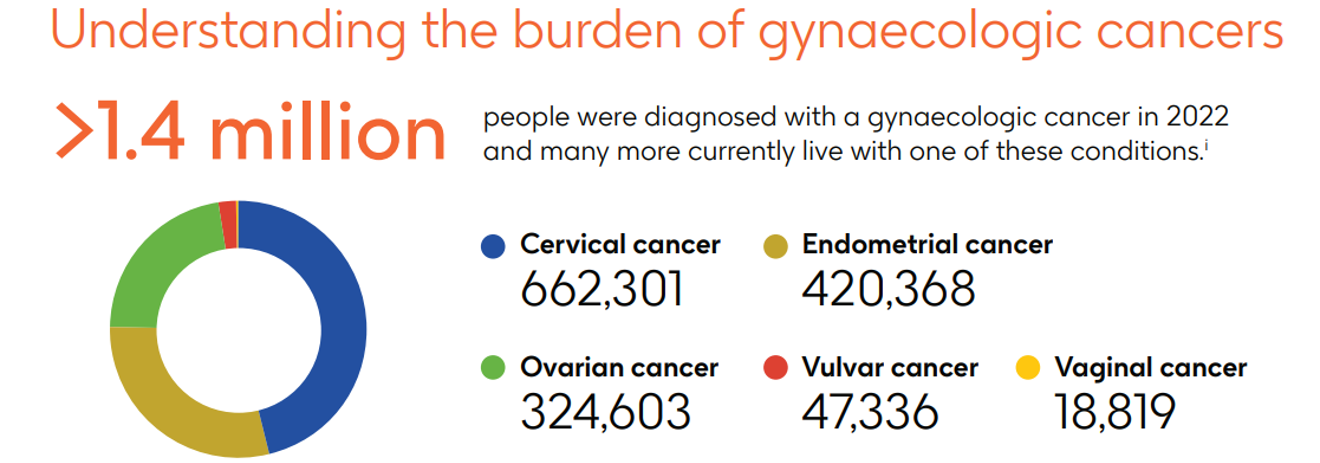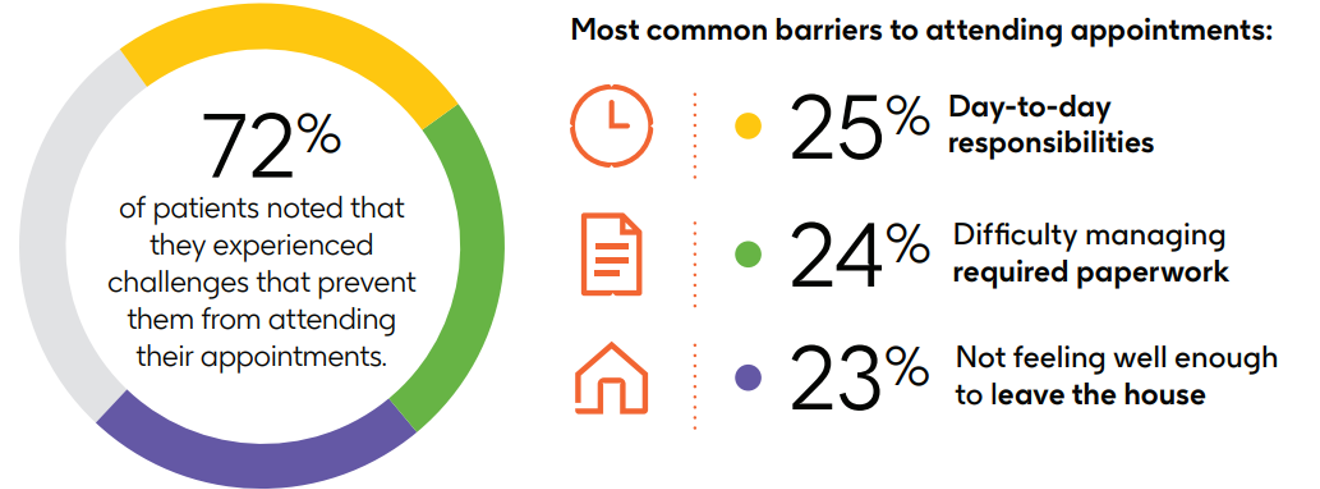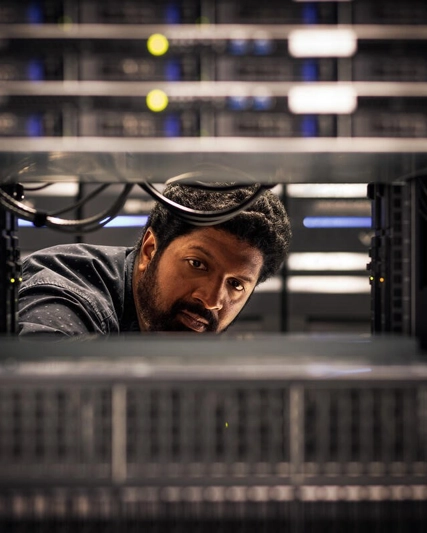There are significant gaps in support for people living with gynaecologic cancers, findings from a new GSK-sponsored survey show.
The multinational poll – which asked 818 patients and survivors from 10 different countries about their unique experiences with endometrial (or uterine), ovarian, cervical, vaginal and vulvar cancer – found several physical and emotional barriers prevented individuals from accessing the care they need.
78% of the gynaecologic cancer patients surveyed said that they experienced challenges in accessing treatment they need, with appointment availability (36%) reported to be the main issue.
Nearly 3 in 4 patients (72%) also had challenges that prevented them from attending their appointments, with 1 in 4 citing day-to-day responsibilities (25%), difficulty managing the required paperwork associated with treatments and/or appointments (24%), or not feeling well enough to leave home (23%) among the most common barriers.

“The ability to follow treatment regimens and access care in a timely way is crucial for patients being treated for cancer,” says Nina Mojas, Senior Vice President of Oncology Global Product Strategy at GSK.
“Yet many patients worldwide encounter serious barriers to care following diagnosis.
“This survey – commissioned as part of our new initiative Your Cancer Is Our Challenge – is shedding a light on how prevalent these barriers can be, and why, for patients with gynaecologic cancers around the world.”
Participants were also asked if they received emotional support from family and friends. 71% said they received a great deal or a lot of emotional support. Just over half additionally received a great deal or a lot of help to get to appointments (57%) and with day-to-day responsibilities (56%).
“When I was diagnosed with stage 3 ovarian cancer, my life completely changed in an instant,” says Jennifer Garam, an ovarian cancer survivor and writer from New York.
“I had to learn very quickly how to adjust to my new reality.
“A cancer diagnosis goes beyond the physical ramifications — I also had to navigate the mental and emotional challenges that come with it, too. In addition to my incredible healthcare team, my strong support system of friends, family and my community was crucial in helping me get through treatment.”
In patients under 30, more than half (55%) reported their mental health has been negatively impacted, while 30% of all patients surveyed said they felt they were to “blame” for their diagnosis.
The survey, conducted by The Harris Poll, also aimed to gauge the level of knowledge patients felt they had about gynaecologic cancers and the treatment options available to them.
While more than 4 in 5 patients (83%) felt their healthcare provider explained treatment options well, many still reported feeling uncertain about what to expect during (41%) or after (36%) treatment.

89% wanted to know more about the types of genetic testing options available that could inform their cancer treatment, possibly enabling precision medicine plans to be created for them based on their individual characteristics and specific cancers. Among those who had received genetic testing since their diagnosis, the majority wished their healthcare provider gave clearer explanations of the test results (74%).
“Given the evolving landscape of gynaecologic cancer care, patients might not have all the details they need to understand what to expect or to make informed decisions,” says Dr Amina Ahmed, a gynaecologic oncologist from Illinois.
“With the prevalence of precision medicine and biomarker-based treatment decisions in cancer care, it’s important for healthcare providers to offer guidance and direct patients to resources to help them understand their options, which are often highly tailored to the individual patient.”
The survey results mark the start of GSK's multi-year initiative ‘Your Cancer Is Our Challenge’, which aims to uncover and help to address barriers associated with gynaecologic cancer, one of GSK’s three focused areas of oncology research, alongside immunology and haematology.
This work includes investigations into treatments that target specific biomarkers – characteristics of the body or a disease that can be measured to provide information about a patient’s biological condition or specific disease.
By understanding the genetic makeup of tumours, scientists can identify potential vulnerabilities and develop therapies that address the underlying mechanisms of the disease.
“At GSK, we are committed to addressing the unmet needs of people with gynaecologic cancers so patients can live better today and thrive well beyond cancer tomorrow,” Mojas concludes.
“Through ‘Your Cancer Is Our Challenge’, we are raising awareness of patients’ experiences and then using those real-world insights to help create actionable programming with the goal of helping improve lives of people diagnosed with gynaecologic cancers.”




